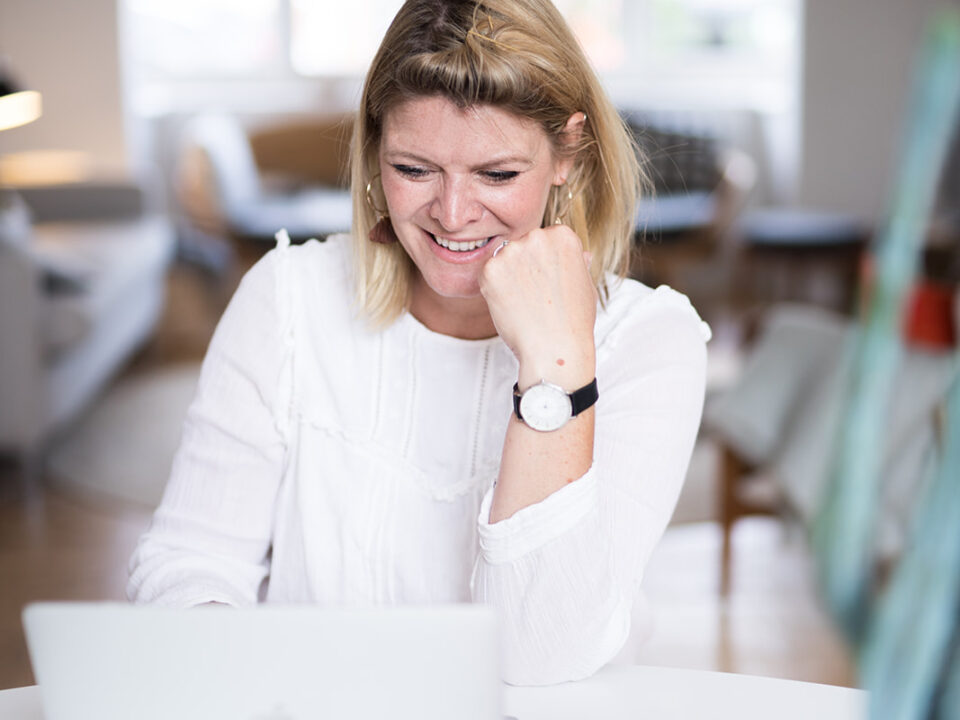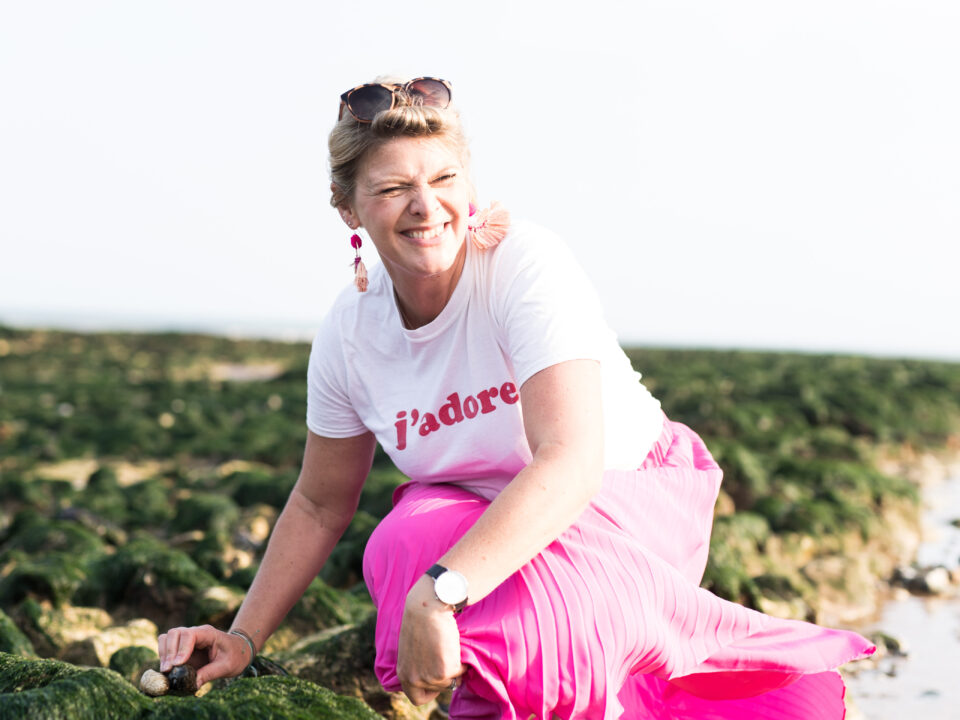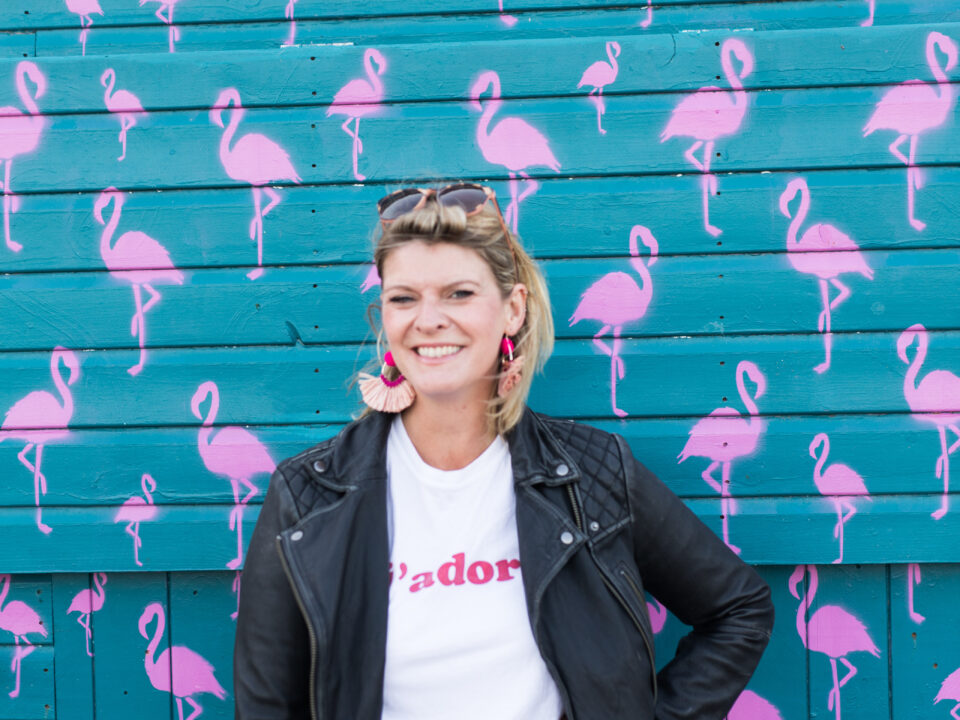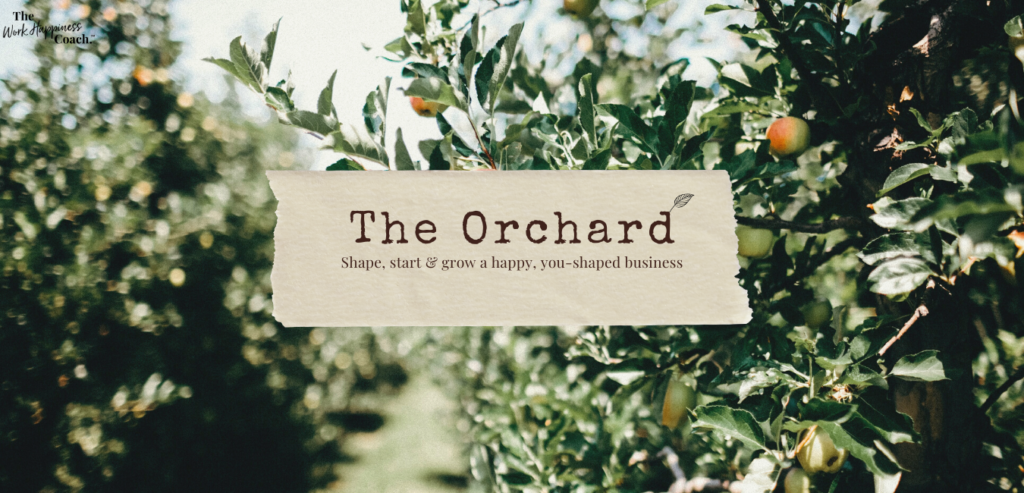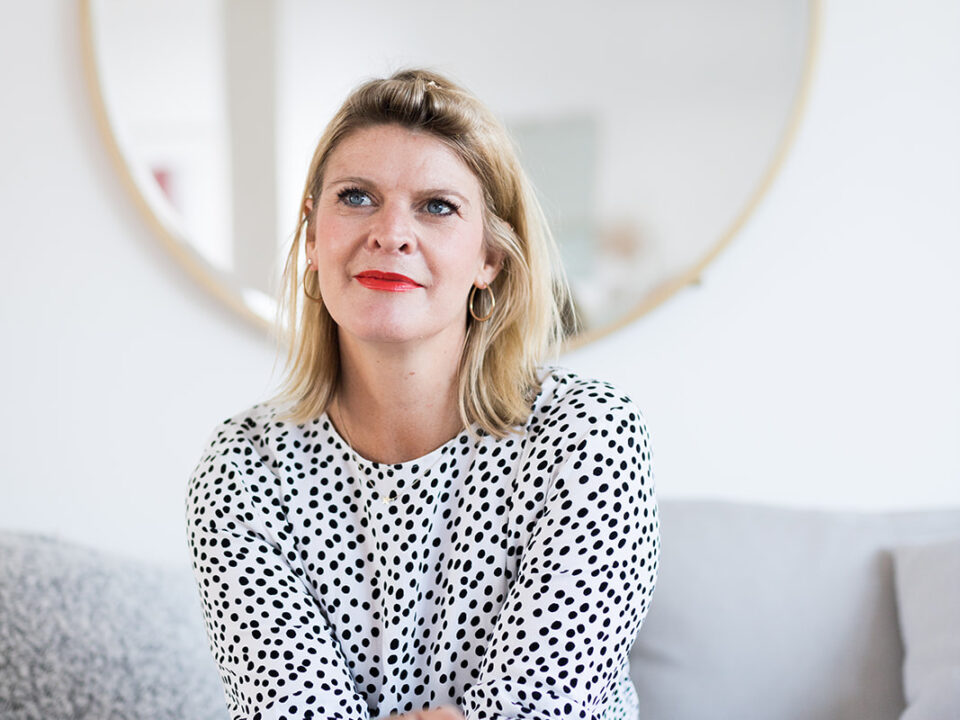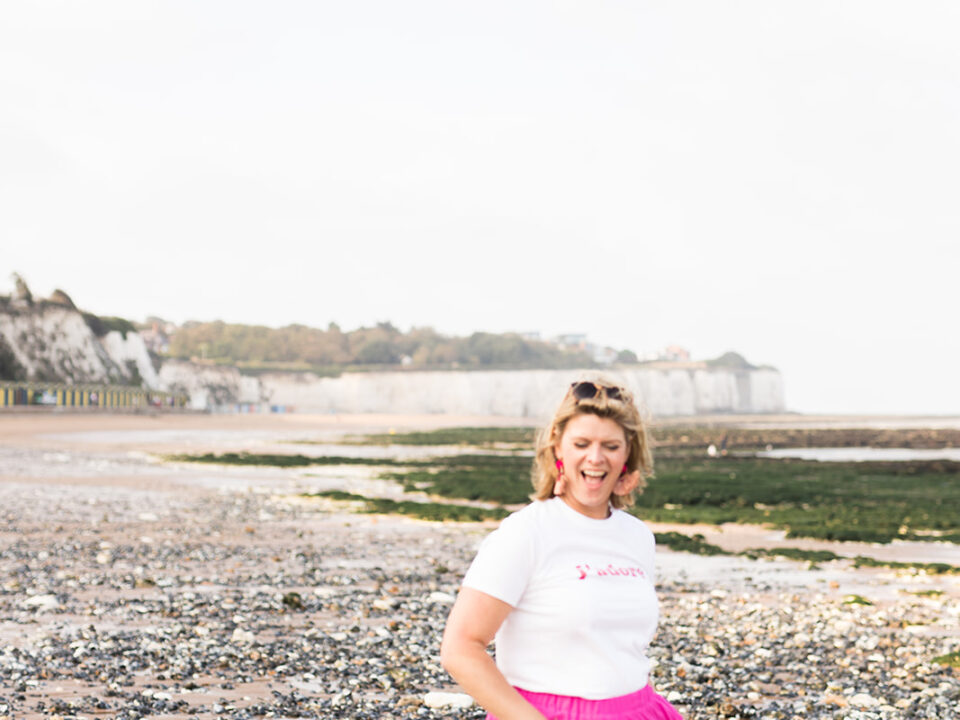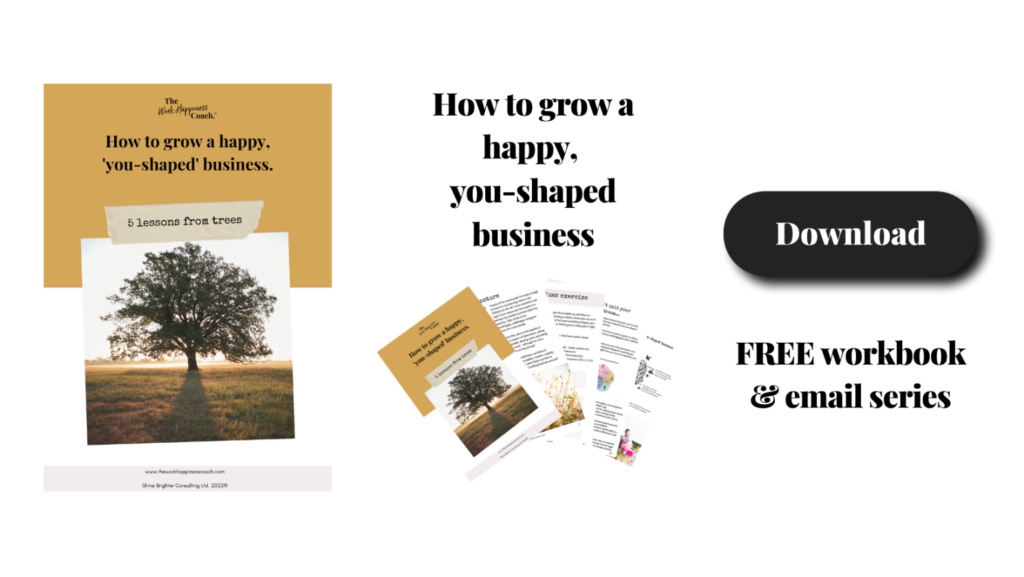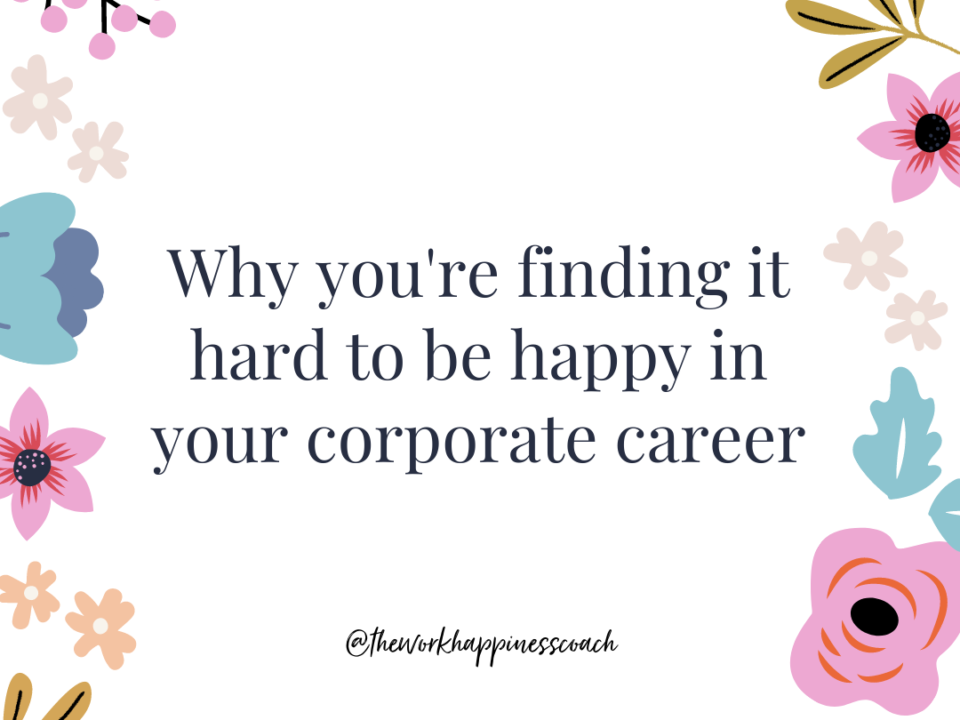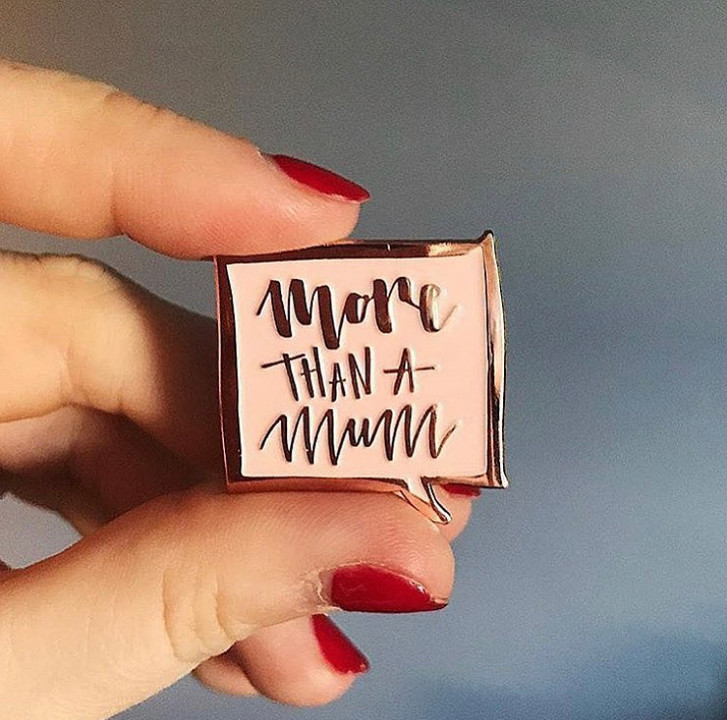(The breezy, low-risk way)
So you’ve got this seed of an idea for a business (or new offering in your existing business) and you’ve got a pretty good feeling about it.
But your pesky inner critic – let’s call her Maud – is not so sure.
“Who are you to say you help people with [insert your awesome idea]?”
“There are 1027647146 other people out there offering [insert your awesome idea].
Why the heck would someone decide to choose you over them?”
Etc.etc.
But you’ve (cautiously) shared it with a few people you trust to be honest with you.
Your mum, your best friend and your partner. And they all concur.
It’s a go-er!
So you start to feel a little more confident that this could indeed be a viable business idea.
But whose opinion is to be trusted? Maud’s or your trusted friends and family members’?
Newsflash…
Neither. (sorry about that).
Whose opinions should matter most?
Your dream clients’ opinions matter above all others.
Lovely and supportive as your family members might be, unless they reflect your ideal client, I’m afraid their opinions count for very little.
If you have an idea for a new product, service (or even a business) ‘seed’ it with the people you intend it to serve, and ask them for their honest opinions.
Does it sound like something they’d need?
What would they like it to include?
What would they be willing to pay for it?
That way you’ll only design something you know there is already a demand for.
‘Seeding’ is a relatively low-risk way to gauge interest in an idea or concept, whilst also bringing prospective clients and customers on ‘a journey’ with you; co-creating a solution with them that they may well invest in further down the line.
People like to get in at the start of any project. It makes them feel like an ‘early adopter’. Special. Particularly if they helped shape the thing they are signing up to.
That’s why founders’ rates and ‘beta’ programmes tend to do so well once they launch.
I used this approach when I launched my affordable career coaching membership, The Shine Collective and I signed 10 people as soon as it went live.
Seeding can happen on social media, over the phone or via a brief online survey – whatever works for you.
If you have an acorn of an idea for a new offering (or even a new purpose-led business), how could you get in front of your dream prospective clients and find out what they would want?
Once you validate your idea, you’ll be able to launch it with confidence that it will be viable and that there is a ready-made audience waiting to buy it from you.
I’d love to hear about any ‘acorns’ you are sitting on. Share them with me by dropping me an email here, and I’ll help you come up with some ways to see if they’ve got legs.
You never know – they could just well become mighty oaks one day if you start growing it today!
This article is for you if the thought of self-promotion is holding you back from either starting a business or putting yourself out there in your existing business.
One of the most important skills you’ll have to hone as a founder is self-promotion.
Gulp.
I know, I know.
But bear with me.
It really doesn’t have to feel ick-inducing .
Here are my 3 top tips on getting (more) comfortable with it.
1. Reframe the ick
One of the biggest hurdles you have to overcome as a new business owner is the idea that selling yourself or promoting your offers is arrogant.
Am I right?
But if you can’t confidently and clearly articulate how you can help your prospective clients, how will they ever understand how you could help them?
And I know you’re in the business of helping people as well as making a living.
You’d actually be doing them a disservice by not sharing how you could help them.
2. Mine your super powers
You are your super powers. Those things that make you uniquely you.
Your USPs (Unique Selling Points) if we’re getting all corporate speak about it.
Your superpowers are made up of your unique personality traits, strengths, gifts, values, beliefs, skills, knowledge, work and life experiences.
Nobody does it better. (Baby you’re the best)
Your ideal clients know what they are and will tell you in their testimonials.
3. Look for patterns
Next time a lovely client or colleague leaves you a LinkedIn recommendation or gives you a testimonial, look for the recurring themes, patterns and words.
- What vocabulary do they use?
- How do they describe your value?
- What transformation have they experienced?
Not only are these words such a lovely confidence boost, but they give you a whole host of new adjectives you can use in your content, copy and discovery calls.
See if you can get the gist of how I help from these kind words from my wonderful clients.
Why not try it for yourself?
Please do let me know how you get on.
- What patterns do you notice about your own superpowers?
- What transformations do you help your clients achieve, if you already have your own service-based business?
- How could you weave these USPs into your marketing and, aherm, dare I say it, ‘self-promotion’ activities?
Feel free to drop me a line or send me a DM on instagram to share what patterns you’ve noticed. I’d love to know.
What’s real reason you’re not starting the business you’ve always dreamed of?
I’ve been loving chatting to all the incredible future female founders who booked a discovery call with me this month. Plus these calls are always such a good source of inspiration for my newsletters and social media posts. (pro tip!)
This time, they’ve highlighted what seems to be the biggest blocker for women starting their own business.
There were a few contenders.
A lack of time. A lack of money. A lack of ideas. A lack of understanding of ‘how to do it’.
The winner?
A lack of confidence.
99% of the women I speak to who are considering leaving their 9-5 or freelance careers, are staying stuck doing work that makes them miserable because of a lack of confidence.
Maybe it’s it your biggest blocker too?
It definitely was mine. I couldn’t fathom why anyone would want to actually pay me to help them with their return to work. (and I then went on to match my old Head of Talent corporate salary doing it!)
Confidence gremlins come in all shapes and sizes.
Here are the top 3 types I see most often:
- A lack of confidence that anyone will want buy ‘your thing’
- A lack of confidence in your own abilities
- A lack of confidence in selling and marketing yourself
Let’s take each one in turn and try to put them back in their boxes…
- A lack of confidence that anyone will buy ‘your thing’
If you’re keen to become a purpose-led founder, i.e your business ‘why’ comes straight from your heart and soul; it really matters. You BELIEVE in its value in the world. (If you don’t, I’d question if it’s the right thing.)
Chances are, your business idea is going to CHANGE LIVES in some way or another. Your people will pay for the transformation if it’s compelling enough and if it solves a problem they have.
If you would have paid for the thing you want to offer, then other people will too. (I wish I’d have paid to fast-track shaping my own business back in 2018!)
It’s simply a matter of drawing those people to you with your magnetic messaging, showing empathy for their problem and pricing your service in line with the value of the transformation you’re offering.
Check out my article about why purpose-led businesses are THE best type of businesses to start.
- A lack of confidence in your own abilities
When you put yourself out there, there has to be a tiny part of you that believes you know your stuff and that you can actually help your dream client achieve their goals.
Yes, this self-belief will often be fleeting at first (you can work on that) but as long as you have a base level of skills, knowledge, talent and passion, that’s all you need to start.
Your confidence will grow when you start to help your clients generate the results. It’s validation, evidence and proof to your inner critic that you’re more than capable.
I remember so clearly the day I received my first ever testimonial. It’s the day I realised it was all worth it.
To take that first step, all you need is a glimmer of belief.
Scour your Linkedin recommendations or appraisal feedback for evidence of your brilliance if you need to spark that self-belief.
Remember, you only need to know a little bit more than the person you want to help for you to be able to add value to their life. You’ve totally got this.
- A lack of confidence in selling and marketing yourself
When you work for a big brand and you have to sell their product or service, it doesn’t feel half as terrifying as selling your own thing!
You’re effectively selling yourself. It’s so personal. It even activates a different region of your brain, your amygdala. The fear of rejection is real.
Your identity and self-worth feels caught up in whether or not someone will buy your thing. It can feel like if they don’t buy your thing, they’re rejecting YOU.
And for anyone who ever felt left out at school, that pain is real. So you ‘stay safe’ and don’t put yourself out there. You stay stuck and don’t start your business.
But learning to release attachment to the outcome and whether anyone buys your thing or not is a really important skill to learn. No one likes a desperate sales pitch after all.
The other important reframe is remembering that sales and marketing is simply you explaining how your thing could help them. It’s simply good communication.
Whether you’re a teacher or an L&D professional, you’re basically ‘selling’ concepts and transformations every day. If you’re a director on a senior management team, you’re ‘selling’ strategies and ideas every day to your team and board.
Do any of these confidence blockers resonate with you?
If so, I’d love to know which one.
Drop me a line or send me a DM on instagram. Tell me I’m not alone!
Going freelance is a common stepping stone out of the corporate world. In fact, it was the exact path I took myself. And it worked out really well for the 3 months I did it for.
The promise of freedom, flexibility, autonomy and ‘working on your terms’ is a huge lure of going freelance!
But the reality can often feel less than alluring when you end up:
– Selling your time for money
– Working with misaligned clients
– Giving away your valuable IP
– Having little influence over the process or project
– Becoming a faceless freelancer wfh
– Receiving very little (if any) recognition for your contribution
– Relinquishing the relationship with your end client
– Giving up 20%+ of your day rate to agencies
– Compromising on your work life balance boundaries
– Doing meaningless work so you can pay the bills
– Feeling like ‘just another cog in a corporate wheel’
I could go on…
But starting your own purpose-led business and ‘going it alone’ can feel utterly terrifying because so much is out of your comfort zone;
– You have to get clear on your why, mission, purpose and brand story
– You have to identify those dreamy clients whose problems you want to solve
– You have to package your uniqueness into value-adding products and services that people will actually want to buy
– You have to reinvent yourself and build a new personal brand
– You have to get visible and ‘sell’ yourself and your value to perfect strangers
And perhaps most importantly, you really have to BELIEVE in yourself and the value of what you’re offering to the world.
Because if you don’t believe in your own value, why will anyone else?
If this transition from employee/freelancer to founder mindset is something you’d like a hand with, I have an intimate, nature-inspired future founder container called The Orchard
Click the button below for more information.
If I can find work happiness, so can you.
Feeling safe, happy and fulfilled in your work life is not a nice to have.

Resilience is one of those ubiquitous buzzwords that seems to be doing the rounds in the world of work and business at the moment.
Heaven knows, our collective resilience has been tested to the max these past couple of years.
But how would you define it?
If you’re anything like me, you may have defined it as ‘the ability to keep on pushing through against all odds’ – which was very much my approach to work when I worked in the corporate world until 2016. Resilience was often worn as a badge of honour – the ability to endure prolonged periods of stress and pressure – ooh, yes, please!
The truth is, ‘pushing through at all costs’ is the very opposite of what it means to be resilient.
In its truest sense, resilience is the ability to bounce back and recover from adversity and challenges. The speed at which you recover from a bad day, if you will. More bamboo, less granite.
We all have different capacities for stress
There’s very little to be gained from comparing yourself to Mary in accounts who always just seems to ‘get on with it’ when the proverbial hits the fan. If you feel that similar setbacks seem to stop you in your tracks, berating yourself for your inability to cope is unhelpful.
The fact is, Mary may well have a different capacity for stress to you. Your lived and professional experience, your genetics, socio-economic background and your daily circumstances will have a bearing on the size of your own ‘stress container’.
The trick is to learn how to identify when yours is filling up before it reaches the point of overflow!
Get to know your own stress response
How you and I respond to setbacks and challenges will vary greatly. The point at which your stress container will overflow will therefore also differ to mine. In fact, it’s likely that the speed at which your stress container fills will vary day-to-day; depending on a number of factors such as the amount of sleep you’ve had the night before, how much you have on your plate, your diet, how much exercise you’ve taken that week etc.
But thankfully, your body is a mine of information when it comes to telling what you need. The problem is, many of us have lost connection with our bodies and we spend too much time up in our heads, caught up in our thoughts.
The power of the mind-body connection is well-documented but ignore your body’s tell-tale signs at your peril! Think of it as an ‘early warning’ system, sounding the alarm that all is not well, that we need to change things up.
Tell-tale signs you’re experiencing burnout or your resilience levels are low:
You may well notice that you experience psychological, behavioural and physiological effects of stress. We all experience them to varying degrees. It’s worth reflecting on your own warning signs so that you can recognise them. Such signs may include:
- Lack of motivation
- Insomnia
- IBS
- Sleep disruption
- Mistakes
- Injuries
- Emotional overwhelm
- Easily triggered
- Exhaustion
- Lack of mental clarity / brain fog
- Anxiety
- Physical symptoms – hair loss, inflammation
Occasional stress can be helpful
Our bodies were designed to withstand occasional and low-levels of anxiety and stress; in fact it shows that a little can actually improve our performance and cognitive function. But when that stress becomes constant and chronic, we force our bodies to operate with persistent and elevated levels of adrenaline and cortisol in our blood streams which can be catastrophic for our physical and mental wellbeing.
You’re designed for survival so if your mind detects a threat – such as the threat posed by a toxic boss and pressing deadline – your autonomic nervous system will respond by triggering your fight and flight response.
This response has evolutionary origins which helped you run for the hills at the first sign of danger. Blood floods to your muscles to help with the afore-mentioned running and leaves your prefrontal cortex – the part of your brain responsible for executive function. This is why it feels so hard to think clearly when you’re suffering from burnout or acute stress.
Top tips to boost your own resilience
The trick here is to increase the size of your own stress container. In turn, boosting your capacity for stress and ability to bounce back from adversity more effectively. If you consider the analogy of one drop of ink in a small container in a glass of water versus the same drop of ink in a bath of water, you will see how increasing the size of your own container will help dissipate the feelings of overwhelm.
- Get to know your own limits and create (and communicate) healthy work boundaries
- Get enough sleep for you – 7-9 hours is the recommended amount – Read Matthew Walker’s eye-opening book “Why we sleep” for more on the importance of sleep.
- Practise gratitude – daily journaling can help rewire your brain to see the positives
- Eat a healthy, nutritious diet as often as possible
- Exercise – even if it’s a daily walk around the block, join me on my @workhappy_walkhappy walk!
- Purpose – weaving more meaning and purpose into your career or business is proven to boost resilience, wellbeing and happiness. (you can download my free purpose-led founders workbook here and webinar here)
- Pleasure– be proactive about incorporating more activities that bring you joy into your week – boost your oxytocin levels – it’s been linked to strengthened immunity and reduced anxiety!
- Peace– take time to relax, spend time in nature, mediate, practise yoga or breathwork, take a bath, listen to music to trigger your rest and digest parasympathetic nervous system
- Connection – connect with others – we are social beings and not designed to exist alone
Consistent, baby-steps create new habits that stick.
There’s a reason the couch2 5k takes 3 months! Much like running, resilience is a muscle that you have to build over time. By building a work life, career or business around you and what makes you happy, you’ll boost your resilience, your wellbeing, your impact and your income.
But of course if you feel your work environment is such that chronic, unsustainable levels of stress are unavoidable, it might be time to make a change.
If you’d like a hand, I’d love to help you create a happier, more aligned, purpose-led business so you can work on your terms. You can book a free no string work happiness clarity call here.

Purpose is one of those elusive topics that seems to be on the tip of everyone’s tongues in a post-pandemic🤞world. Crisis is often a common trigger for individuals to seek out more of it in life. When our very mortality comes into question, we start to ask ourselves “What’s the point of it all?” and “What’s the dent I want to make in the world?”
That’s why significant life events can prompt the need to reset and recalibrate. They make us dig deep and question everything. Covid has been one such trigger, as documented by the numerous articles about The Great Resignation.
Motherhood and being diagnosed with Crohn’s disease provided me with two such nudges in my own life.
After nearly 2 decades of working in the fields of employee and organisational development, it was always a no-brainer for me to place Purpose at the very core of my Work Happiness Blueprint© – my signature framework for happy, productive, engaged teams and founders; several years before the purported post-Covid ‘Purpose Crisis’ became apparent.
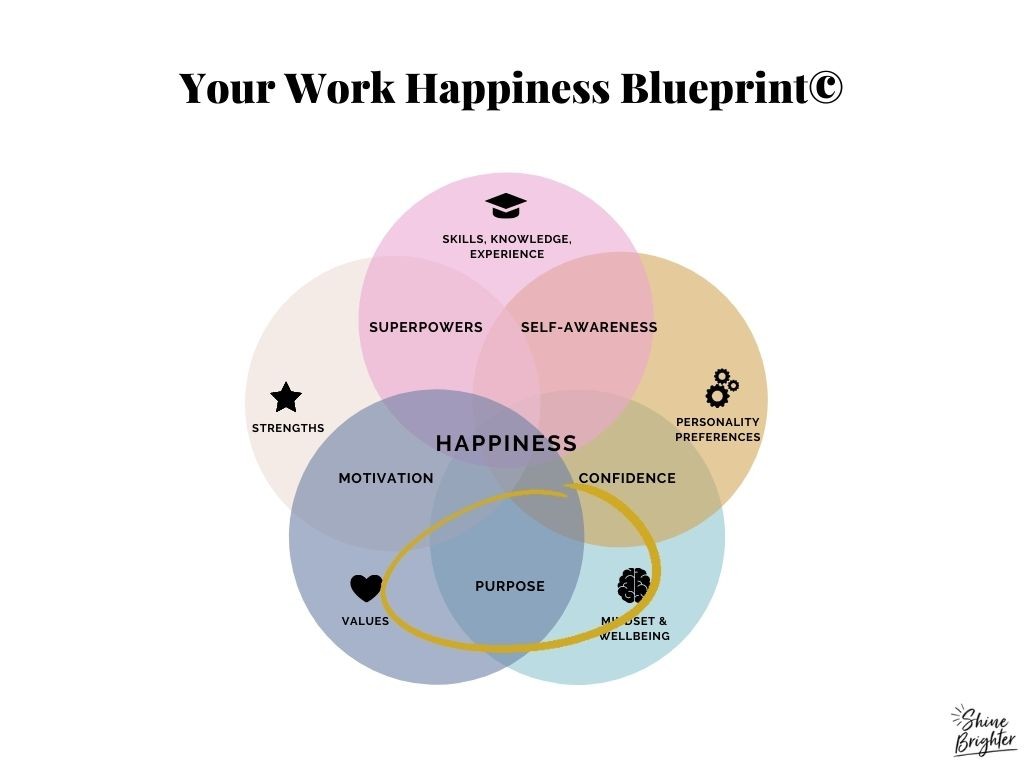
The Power of Purpose on People
Research shows that people who claim to live purposeful lives are more likely to:
- Live longer and healthier lives
- Be more resilient; recovering better from negative events
- Report higher levels of wellbeing 5 x higher than those who don’t
- Feel 4 x more engaged at work
- Experience 50% higher levels of intrinsic motivation
Working (and living) in alignment with your values and purpose also feels great and adds real meaning and fulfilment to your day-to-day, whilst also benefitting the world in some way. What’s not to love?
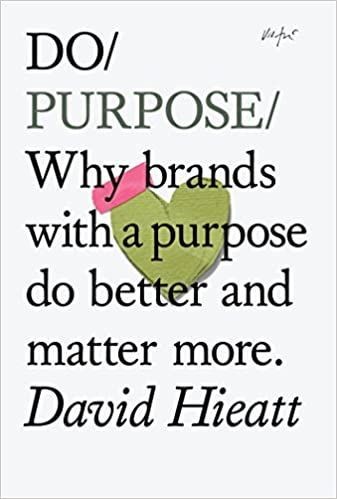
The Power of Purpose in Business
The power of purpose doesn’t only benefit people, it’s also phenomenally good for business too.
💷 According to research by McKinsey, ‘purposefulness’ in employees is positively correlated with their profitability.
📈 According to research by Deloitte, purpose-led brands tend to grow 3 x faster than their competitors.
💓 And the ever-inspiring Simon Sinek reminds us that “People don’t buy what you do, they buy why you do it”. Purpose-based messaging speaks to the subconscious where decisions are made in the brain, which is pretty cool.
⚡️ David Hieatt, the author of the brilliant DO/ Purpose – Why brands with a purpose do better and matter more, perfectly describes purpose as being “the multiplier of energy”.
(Everyone who joins my signature founders programme, The Orchard, receives a copy of this brilliant book. It’s short but very sweet so I highly recommend getting your hands on a copy!)
Put simply, purpose-ful work boosts creativity, resilience and motivation because what you do aligns with your values and the dent you want to make in the world.
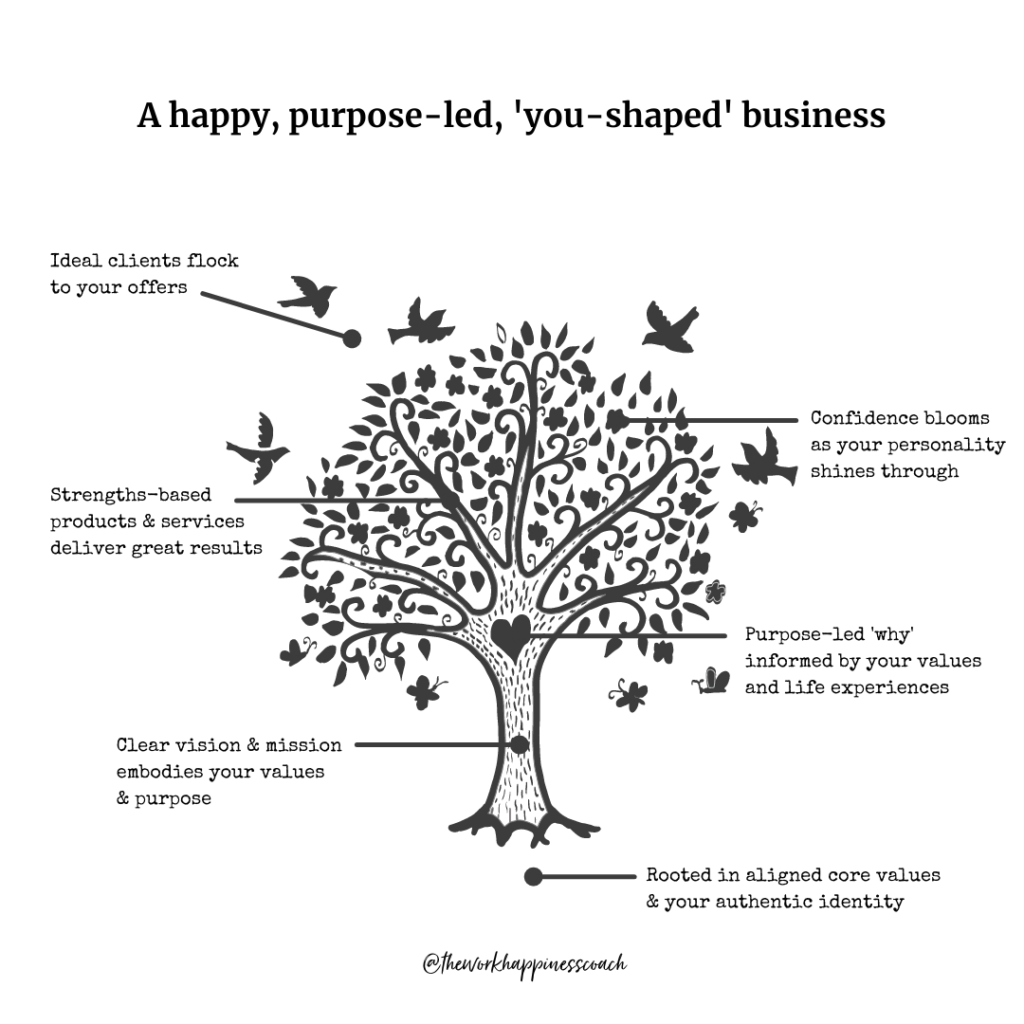
Need a hand shaping your own purpose-led business or team?
Maybe all this talk of purpose-led business has whet your appetite?
Perhaps you’re keen to learn how to shape, start and grow a happy, you-shaped business around your own values, purpose and personality?
I’m opening the doors again to my signature 6-month future and fledgling founders programme, The Orchard, in mid June.🌳 The welcome call will be on Tuesday 14th June at 12:30pm GMT.
If you’re reading this after this date, drop me a line and I’ll let you know when the next welcome call will be.
What is The Orchard?
The Orchard, is my nature-inspired, anti-hustle, 6-month group programme that will show you step-by-step, exactly how to grow a happy, profitable business that aligns with both your purpose and your unique personality.
I’ve channelled nearly 2 decades of shaping and developing purpose-led, people-centric businesses and 5 years experience of building my own happy, profitable coaching consultancy into this programme. I’ve then added a dash of positive psychology and personality theory. 🧠
A pinch of business strategy plus a good dollop of neuroscience, blended together with the cyclical wisdom of Mother Nature 🌱 has resulted in this unique hybrid, self-directed course, with added group coaching support (plus monthly 1:1 coaching and psychometric insights too, if that’s what you’re after.)
Who's The Orchard for?
It’s perfect if you’re starting out on your self-employed journey and want to shape and start a happy, YOU-shaped business in just 6 months. It’s also ideal for you if you’re a fledgling founder in need of a little work happiness ‘course-correction’ in your existing self-employed business.
The welcome call will be on Tuesday 14th June at 12:30pm.
(If you’re reading this after this date, drop me a line and I’ll let you know when the next welcome call will be.)
Click here or on the image above for more details about the programme.
You can book a free call here or click the button below if you’d like to find out if the programme is a good fit for you.
For a taster of my approach, you can download my FREE Founders Workbook and email series here or by clicking on the image below.
And if you’re a leader looking to infuse your team’s culture with more purpose, I’d love to chat about how I could help. You can book a ‘no strings’ initial call here.
Not that there’s anything wrong with being a full-time, stay at home mum, just to be clear. In fact, I am in TOTAL awe and admiration of women who are. I just don’t think I could do it.
I don’t have the patience, resilience or organisation skills to be one! I think motherhood is definitely the best ‘job’ I’ve ever had. Certainly the most fulfilling but probably the hardest.
I also know that I spent nearly 15 years building a career and NOT being a mother. So it stands to reason that a decent chunk of my identity is caught up in my career and the ‘professional’ – I use that term loosely! – version of myself.
“Who I was before I went away and what I had been good at had become a distant memory.”
My confidence was at rock bottom when I went back to work after my 1st mat leave in 2015. I’d gone back part-time and I didn’t really feel like ‘myself’ any more. My job had changed beyond all recognition and so had I. My expectations, my boundaries, my priorities, my sense of identity and confidence. Everything.
I had enjoyed a pretty successful career in employee engagement and organisational development before going away on maternity leave in 2014; a highlight of which was leading the People team who won the Sunday Times Best Company to work for two years in a row in 2015 and 2016.
When I was made redundant a few months later, my confidence took another nose dive. Who I was before I went away and what I had been good at had become a distant memory. I lost sight of my natural talents, the skills and the experience I had worked so hard to acquire, all flew out of the window – almost overnight.
“Your mortality and the meaning of life can become a very real point of reflection in parenthood.”
So what was it about this time out that knocked my confidence so hard?
It is well-documented that many talented mothers lose their sense of self after having children, even though they were often highly successful and full of confidence prior to their career break. I’m sure one of those reasons is the emotional shift and perspective that having children provides; and that there is perhaps more to life than having a fulfilling career?
As a new parent, it soon becomes clear that it is no longer just about ‘you’ anymore. In fact, many mothers find themselves dedicating themselves entirely to the every whim of their mewling new bundle, failing to shower, clothe or feed themselves properly during the early months of motherhood! This is an exaggerated description but you get my drift.
Your mortality and the meaning of life can become a very real point of reflection in parenthood.
This loss of identity can also be affected by the stigma attached to having ‘time off’ to have a child. Apart from the fact I would argue that maternity leave is far from ‘time off’! some employers are still not as empathetic as perhaps they might be to the challenges faced by returning mothers.
The often tricky transition back into the workplace as confidence issues raise their head, the newfound time pressures around childcare and the often emotional pull back to their family being just a few examples.
“Without more support and flexibility in the workplace for working parents, nothing will ever change and more and more mothers may as well sign their own 'do not resuscitate' forms on the careers they have worked so hard to build.”
I consider myself to be one of the ‘lucky ones’ and I managed to secure a freelance contract, as Shine Brighter Consulting, after I was made redundant and worked until the birth of my 2nd daughter with a brilliantly supportive organisation who saw what I had to offer, in spite of my own self-deprecation.
I took 14 months off on maternity leave and basically tried not to think about what I was going to do when I went back! It was very much a case of putting my head in the sand, I see that now!
“I galvanised my own passions and frustrations around wasted female talent in motherhood, mobilised the skills and experience gained in my 15 year career in coaching, people and organisational development and set about reconnecting with my own values and strengths.”
But it had become clear to me that being a stay at home mum was not an option for me. From either a financial or mental health standpoint! I’m definitely more than a mother. I am a working mother and, health permitting, always will be in some capacity. I’m doing it for me and I don’t feel bad about admitting that.
I also want to make my little girls proud, instil a great work ethic in them and show them that they too can work whilst being great mums one day. I am also passionate about changing the way the world of work regards and treats working mothers.
Without more support and flexibility in the workplace for working parents, nothing will ever change and more and more mothers may as well sign their own ‘do not resuscitate’ forms on the careers they have worked so hard to build.
So after my 2nd maternity leave, in March 2018 I galvanised my own passions and frustrations around wasted female talent in motherhood, mobilised the skills and experience gained in my 15 year career in coaching, people and organisational development and set about reconnecting with my own values and strengths. And so the coaching arm of my business was born.
So as well as my leadership development, employee engagement and culture consultancy work, which helps organisations create purpose-led, extraordinary workplace cultures where the best people – even parents! – thrive and grow, I also work directly with ambitious women who want more from their careers.
“Through intuitive and science-backed coaching, I’ll help you reconnect with your unique values, talents and professional purpose so you can grow a brilliant career or start a values-led business you love, that aligns authentically to your personality and purpose. All on your terms.”
If motherhood has had an adverse effect on your own career trajectory and the corporate world has left you lost and disillusioned, I’d love to help you make work your happy place again.
I offer affordable group career coaching in the form of my Shine Collective Membership and 1:1 female founder coaching and mentoring if you are looking for more bespoke, intensive support with your work happiness.
You can book a free ‘no strings’ call to find out more and see if we are a good fit.
You can follow me on @theworkhappinesscoach on instagram and facebook and join my free Facebook group The Work Happiness Playbook.
- You’ve never done it before
- You have no idea what you’re doing
- You work it out as you go along
- Well-meaning ‘experts’ tell you the ‘best’ way to do it
- You have to trust your intuition
- You spend hours on google looking for ‘the answer’
- You often feel like you’re talking to yourself
- It’ll drive you crazy
- It’ll keep you up at night
- You’ll make a shit ton of mistakes
- You’ll learn a lot about yourself
- The lows are soul-destroying
- The highs are out of this world
- It’s the hardest thing you’ll ever do
- It’s the most fun you’ll ever have
- There is no ‘best’ way
- The best way is ‘your way’
- There’s never a perfect time time to start one.
- You’ll never feel ready!
- Erm…


